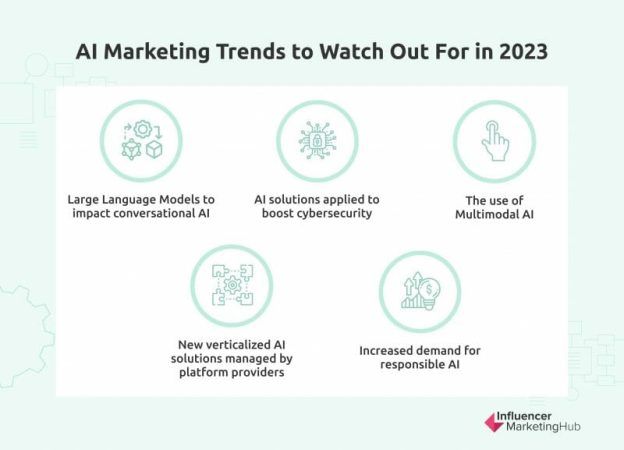So, you’re curious about how to use AI in marketing in the year 2023, huh? Well, you’ve come to the right place! Artificial Intelligence has been revolutionizing the way businesses approach marketing, and its impact is only expected to grow in the coming years. In this article, we’ll explore some exciting ways to leverage AI in your marketing strategies, from personalized customer experiences to efficient data analysis. Get ready to discover how AI can take your marketing efforts to new heights in 2023!
How To Use AI In Marketing 2023?
Artificial Intelligence (AI) has become a game-changer in various industries, and marketing is no exception. With its ability to analyze vast amounts of data, identify patterns, and make accurate predictions, AI has revolutionized marketing strategies. In this article, we will explore how you can effectively integrate AI into your marketing efforts in 2023 and leverage its power to drive better results.
Integrating AI into Marketing Strategies
Before diving into the specifics, it’s crucial to understand the role of AI in marketing. AI enables marketers to automate processes, gain deeper insights into customer behavior, and deliver personalized experiences. By integrating AI into your marketing strategies, you can enhance your ability to reach and engage with your target audience effectively.
Identifying marketing areas where AI can be implemented is the first step in integrating AI into your marketing strategies. AI can be utilized in various aspects such as customer segmentation, personalized marketing, content creation and optimization, social media marketing, email marketing automation, enhancing user experience, chatbots and virtual assistants, predictive analytics, and marketing analytics.
Creating a roadmap for AI integration is essential to ensure a smooth transition. Consider the specific goals and objectives you want to achieve through AI, identify the tools and technologies that align with your needs, and establish a timeline for implementation. Additionally, it’s crucial to ensure organizational readiness for AI adoption. This involves assessing your team’s AI knowledge and skills, providing necessary training, and fostering a culture that embraces AI technology.
Utilizing AI for Customer Segmentation
Customer segmentation is a vital aspect of marketing, and AI can significantly enhance its effectiveness. By leveraging AI algorithms, you can achieve more accurate and detailed customer profiling. AI can analyze vast amounts of customer data, including online behavior, purchase history, demographics, and preferences, to identify distinct customer segments.
Once you have a robust segmentation strategy in place, you can personalize your marketing campaigns based on AI-driven segmentation. AI can help you tailor your messages, offers, and content to resonate with each segment, increasing the chances of conversions and customer satisfaction. It’s crucial to continually monitor and refine your segmentation strategies based on real-time data and feedback to ensure their ongoing effectiveness.
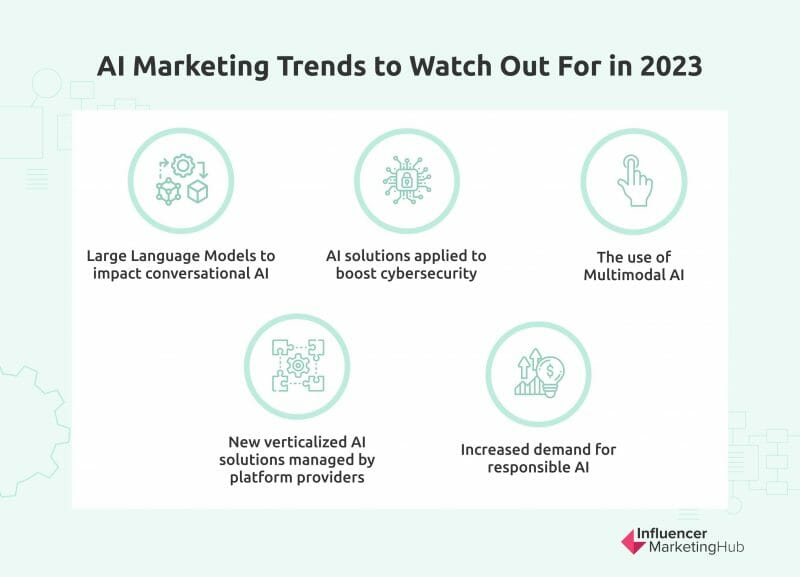
This image is property of influencermarketinghub.com.
Leveraging AI for Personalized Marketing
Personalized marketing has become increasingly important in today’s highly competitive market. AI can play a crucial role in delivering personalized experiences at scale. By utilizing AI-powered recommendation engines, you can provide tailored product suggestions and content recommendations to individual customers.
Through AI, you can gather and analyze data on customer preferences, behaviors, and past interactions to create personalized marketing messages. By understanding each customer’s unique needs and interests, you can deliver more compelling offers and content, increasing engagement and driving conversions. Furthermore, AI can help you implement dynamic pricing strategies based on real-time market data and customer demand, maximizing sales and profitability.
Using AI for Content Creation and Optimization
Content creation and optimization are integral parts of any marketing strategy, and AI can significantly streamline these processes. AI-generated copywriting can automate content creation, saving time and resources. AI can analyze existing content, customer data, and market trends to generate high-quality, engaging content that aligns with your brand voice and resonates with your target audience.
Moreover, AI can optimize content for search engines using techniques such as natural language processing and keyword analysis. By ensuring that your content is easily discoverable by search engines, you can increase its visibility and reach a broader audience. AI tools can also help test and analyze content performance, providing valuable insights into what resonates with your audience and enabling you to make data-driven content decisions.
Additionally, AI enables real-time content personalization. By analyzing customer data and behavior in real-time, AI can dynamically adjust content based on individual preferences, ensuring that each customer receives a personalized experience.
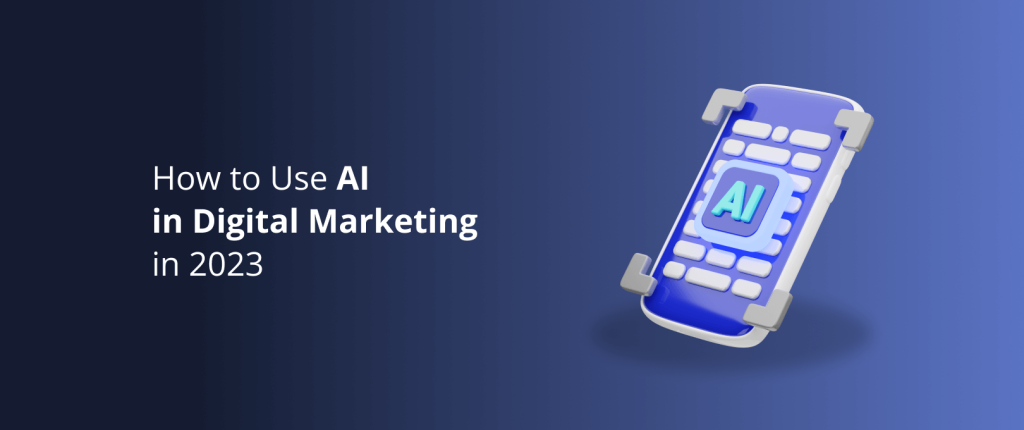
This image is property of devrix.com.
Leveraging AI for Social Media Marketing
Social media has become a powerful platform for marketers to connect with their target audience, and AI can enhance your social media marketing efforts. AI can automate social media scheduling and posting, allowing you to optimize your social media presence and maintain a consistent posting schedule. AI-powered scheduling tools can analyze audience engagement patterns and recommend optimal posting times for maximum visibility and reach.
Sentiment analysis and social listening are essential components of effective social media marketing, and AI can greatly simplify these tasks. AI algorithms can analyze social media conversations and comments, identify sentiment, and extract valuable insights. By understanding how your audience perceives your brand and products, you can tailor your marketing messages and improve customer satisfaction.
Moreover, AI-powered chatbots can be implemented on social media platforms, enabling automated interactions with customers. Chatbots can handle customer inquiries, provide information, and even assist with sales transactions, freeing up valuable time for your marketing team and enhancing the overall customer experience.
Automating Email Marketing with AI
Email marketing remains a highly effective strategy, and AI can take it to the next level. AI can enhance email targeting and segmentation by analyzing customer data, behaviors, and preferences. By leveraging AI, you can ensure that your emails reach the right people at the right time, increasing open and click-through rates.
Personalized email content recommendations powered by AI can greatly enhance your email marketing efforts. AI algorithms can analyze customer data and past interactions to recommend relevant products, offers, and content in your emails. By delivering personalized emails that cater to each recipient’s interests and needs, you can increase engagement and conversions.
Furthermore, AI can optimize your email campaigns by analyzing various factors such as subject lines, email content, and send times. AI algorithms can test different variations and combinations to identify the most effective email campaign strategies, improving overall performance and ROI. AI can also automate email campaign performance tracking, providing real-time analytics and insights to help you make data-driven decisions.
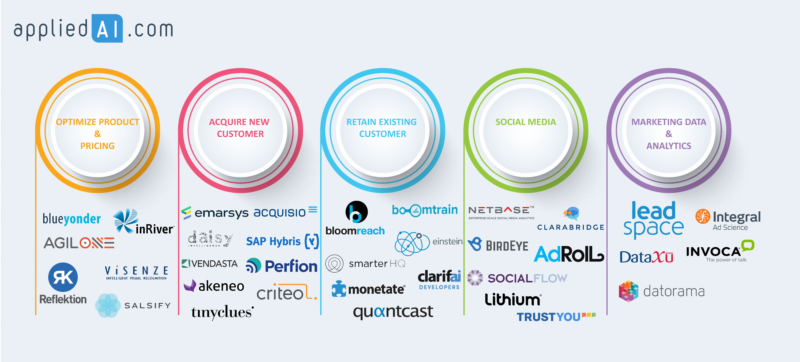
This image is property of research.aimultiple.com.
Enhancing User Experience through AI
A positive user experience is crucial for customer satisfaction and loyalty, and AI can be a powerful tool in achieving this. AI can help create seamless user experiences by analyzing customer data and behavior to personalize interactions. By utilizing AI chatbots, you can provide personalized customer support at scale. Chatbots can answer frequently asked questions, guide customers through the purchasing process, and provide instant assistance, ensuring a smooth and efficient user experience.
Voice and visual search capabilities driven by AI are becoming increasingly popular among consumers. By leveraging AI, you can implement voice and image recognition technologies, allowing customers to search for products or information using voice commands or images. This enhances convenience and accessibility, providing a more engaging user experience.
Furthermore, AI can power personalized product recommendations based on customer data and behavior. By analyzing past purchases, browsing history, and preferences, AI can suggest products that are most likely to resonate with each individual customer. This not only increases the chances of conversions but also enhances customer satisfaction and loyalty.
Adopting AI for Chatbots and Virtual Assistants
Chatbots and virtual assistants have become integral parts of customer interactions, and AI plays a significant role in their effectiveness. AI-powered chatbots offer numerous benefits, including 24/7 availability, instant response times, and scalability. Chatbots can handle customer inquiries, provide product information, and even assist with sales transactions, freeing up valuable time for your marketing team and enhancing the overall customer experience.
Natural language processing and understanding are key components of successful chatbot interactions, and AI can greatly improve these capabilities. By leveraging AI, chatbots can understand and respond to natural language inquiries, making interactions more conversational and human-like. This improves customer satisfaction and reduces frustration.
Furthermore, integrating virtual assistants powered by AI into your marketing processes can provide valuable support. Virtual assistants can handle various marketing tasks, including data analysis, campaign optimization, and even content creation. By offloading these tasks to virtual assistants, you can free up your marketing team’s time and resources, allowing them to focus on more strategic initiatives.
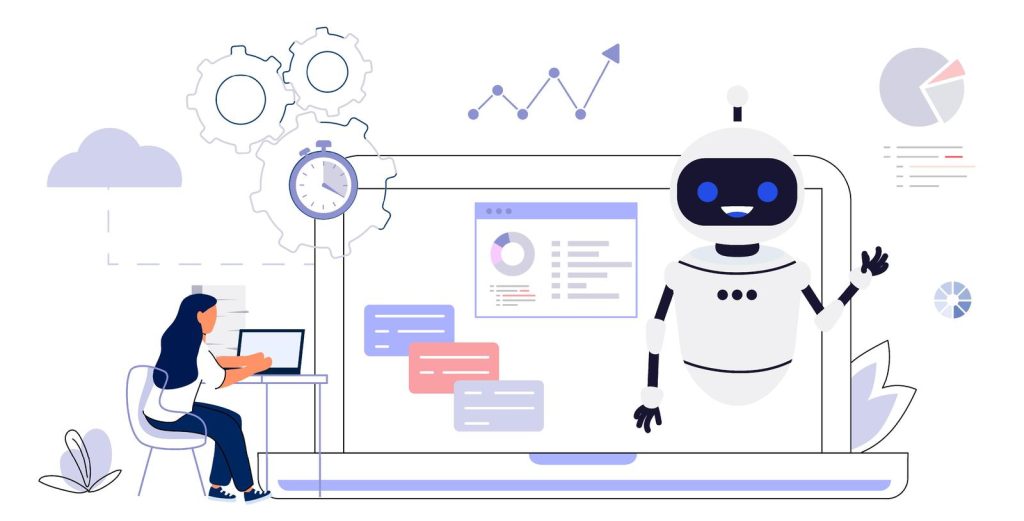
This image is property of alltechmagazine.com.
Applying AI in Predictive Analytics
Predictive analytics is the practice of using historical data and AI algorithms to make accurate predictions about future events or outcomes. AI-powered predictive analytics can transform your marketing efforts by enabling you to anticipate customer behavior and make data-driven decisions.
By analyzing historical customer data, AI algorithms can identify patterns and trends, enabling you to make predictions about future customer behavior. This information can help you identify the most valuable customer segments, optimize your marketing campaigns, and allocate resources effectively.
Predictive analytics can also be applied to forecasting and demand planning. By utilizing AI algorithms, you can analyze historical sales data, market trends, and external factors to forecast future demand accurately. This allows you to optimize your inventory management, production planning, and pricing strategies, ensuring that you meet customer demand while minimizing costs.
Leveraging AI for Marketing Analytics
Marketing analytics is essential for measuring the success of your marketing efforts and making data-driven decisions. AI can augment your marketing analytics capabilities by automating data collection, analysis, and visualization.
AI-powered analytics tools can gather data from various sources, including social media platforms, website analytics, and customer databases. By automating data collection, AI saves time and ensures accuracy. AI algorithms can then analyze this data, identify patterns and trends, and provide valuable insights into the effectiveness of your marketing campaigns.
Visualization plays a crucial role in understanding and communicating data effectively. AI-powered analytics tools can generate visually appealing and interactive dashboards, making it easier for marketers to interpret complex data and share insights with stakeholders.
By leveraging AI in marketing analytics, you can make data-driven decisions, optimize your marketing strategies, and track the performance of your campaigns more effectively. This ultimately leads to improved marketing ROI and better overall business outcomes.
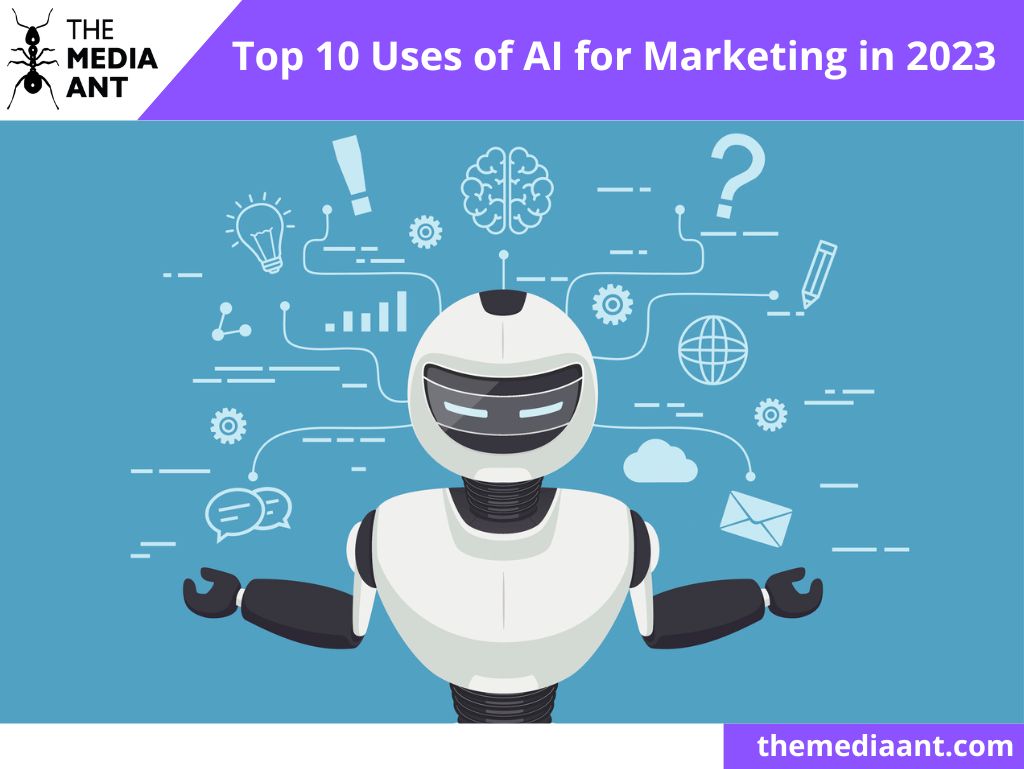
This image is property of www.themediaant.com.
Conclusion
The future of AI in marketing is bright, and adopting AI-driven strategies can give your business a competitive edge. By integrating AI into your marketing strategies, you can enhance customer segmentation, deliver personalized experiences, optimize content creation and optimization, automate email marketing, enhance user experiences, leverage chatbots and virtual assistants, apply predictive analytics, and streamline marketing analytics.
However, implementing AI in marketing comes with its challenges and considerations. It’s essential to have a well-defined roadmap, ensure organizational readiness, and address potential risks such as data privacy and ethical considerations.
By embracing AI in your marketing efforts, you can unlock the power of data, gain valuable insights into customer behavior, and deliver personalized experiences that drive better results. AI adoption in marketing holds tremendous potential, and by staying ahead of the curve, you can pave the way for marketing success in 2023 and beyond.
